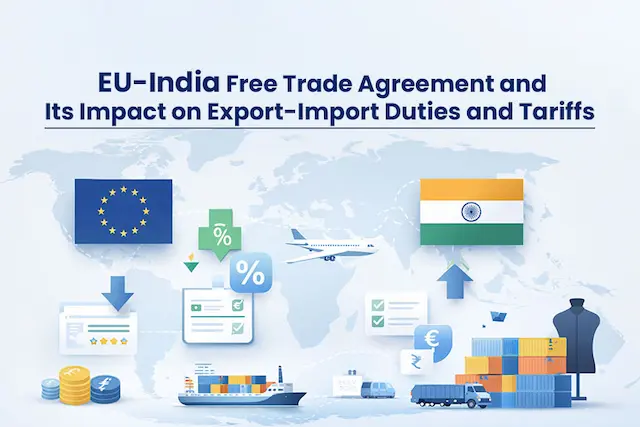In international trade, dumping happens when a company sells its products in a foreign country at prices lower than what they would charge in their home market. While this may sound like a good deal for consumers abroad, it often leads to negative consequences for the importing country’s domestic businesses.
By lowering prices artificially, dumping companies can gain an unfair advantage in the market, sometimes forcing local competitors out of business. This is why many countries have anti-dumping policies, which are designed to protect local businesses from such practices.
What Is Dumping in International Trade?
Dumping is a form of price discrimination, which means selling the same or similar products at different prices in different markets. Companies may do this to increase their market share in foreign countries, even if it hurts the local economy. Over time, these companies can make large profits, known as “supernormal profits,” at the cost of shutting down their rivals.
How Dumping Works: The Strategy Behind It
Dumping often happens when a company or a country produces more goods than they can sell domestically. To get rid of their excess stock, they sell it in foreign markets at a much lower price than they would at home. This lower price helps the foreign company quickly gain customers in the new market, but it can harm local producers who can’t compete with the artificially low prices.
Countries or businesses that experience this might impose anti-dumping duties—additional taxes placed on the dumped goods. These duties aim to bring the price of the imported goods back to a fair level, helping to protect domestic industries.
Also Read: Understanding the Difference Between Anti-Dumping and Countervailing Duties
Different Types of Dumping in International Trade
There are several ways that dumping can take place in international trade. Let’s explore the four main types:
Predatory Dumping
Predatory dumping happens when a company intentionally sells products at an unfairly low price to drive competitors out of the market. Once the competition is weakened or eliminated, the dumping company can increase prices and dominate the market. This type of dumping can devastate local businesses, leading to loss of jobs and reduced investment in the local economy. In extreme cases, it can force companies to close down.
Intermittent and Persistent Dumping
Intermittent dumping occurs when a company sells products at lower prices in foreign markets only when it has extra stock it can’t sell at home. The price in the domestic market remains unchanged.
Persistent dumping happens when the company continuously sells its products at a lower price abroad, regardless of stock levels, to maintain a strong presence in the foreign market.
Official Dumping
This occurs when countries use tax policies or subsidies to help their companies sell products at lower prices abroad. Even though the profit margin might be smaller, it helps the company gain a larger customer base in the foreign market. While this type of dumping may be considered legal and transparent, it still hurts local industries in the importing country, which struggle to compete with the subsidized prices.
Social Dumping
Social dumping happens when essential goods (like food or medicine) are sold at lower prices during times of emergency or distress. Governments may allow or encourage this during events like natural disasters or pandemics.
During the COVID-19 pandemic, many countries lowered the prices of critical items like masks and antigen tests to make them more affordable to the public.
Advantages and Disadvantages of Dumping
One of the main advantages of dumping is that it allows a company to sell products at a much lower price in a foreign market, which can seem unfair to competitors. The exporting country might even offer financial support to the producer to cover the losses from selling goods below the manufacturing cost. However, this comes with downsides. Over time, these subsidies can become too expensive to maintain. Plus, other countries may respond by imposing restrictions or higher costs on imports, which can limit how much a company can export or increase the expenses of doing so.
Why Do Companies Engage in Dumping?
Companies engage in dumping to break into new markets and gain a competitive edge. By selling products at lower prices, they can push out local competitors. If successful, the company might eventually dominate the market and create a monopoly, controlling the supply and prices of certain goods or services.
What Is the Dumping Margin?
The dumping margin is the gap between what a product costs in its home country and the price it’s sold for in a foreign market. This difference highlights how much cheaper the exported product is compared to its domestic price.
Negative Impacts of Dumping on International Trade
While it may seem like a foreign country selling goods at low prices is a good thing, it often causes harm to the local economy in various ways:
Damage to Domestic Production
Local companies may not be able to compete with the low prices set by foreign dumping companies. Over time, this can damage or even destroy domestic production, leading to business closures and job losses.
Shifts in Consumer Demand
When a foreign company dumps products at lower prices, it can shift consumer demand away from local products. Once the dumping stops and prices return to normal, consumers may find it difficult to adjust, creating problems for the domestic market.
Market Instability
Dumping can disrupt the natural balance of supply and demand in an economy. When dumped goods flood the market, local producers may struggle to sell their products, causing market failure. Once the dumping stops, the sudden shortage of cheap goods can create further economic instability.
Oligopolies and Collusion
In some cases, local businesses may band together to fight off dumping by foreign companies. This can lead to the formation of collusive oligopolies, where a few companies dominate the market. However, smaller businesses often can’t compete and may be taken over by foreign competitors.
Real-World Example of Dumping
In 1947, the United States investigated a case of Polish golf carts being dumped in the U.S. market. Interestingly, Poland did not have any golf courses, nor did it sell golf carts domestically. All the production was for export. This case highlights how difficult it can be to prove dumping when there are no comparable prices in the exporter’s home country.
In more recent years, countries like the United States and India have accused China of dumping goods like steel and electronics at unfairly low prices. This has led to job losses and the collapse of several industries in the affected countries.
How to Get Rid of Dumping?
While dumping may benefit the exporting country, it often harms the importing country. To protect their economies, governments can take the following steps to combat dumping:
Imposing Tariffs
Countries can impose tariffs (taxes on imported goods) to raise the price of dumped products to a fair level. The tariff is usually equal to the difference between the local price and the dumped price, making it harder for the foreign company to undercut local businesses.
Setting Import Quotas
Another strategy is to limit the number of goods that can be imported from the dumping country. By setting an import quota, the domestic government can ensure that the market isn’t flooded with cheap foreign products.
Voluntary Export Restraints (VER)
Sometimes, two countries may agree to limit the export of certain goods to prevent dumping. This is known as a Voluntary Export Restraint (VER). These agreements help maintain a balanced trading relationship and prevent future dumping.
Frequently Asked Questions
Can a ban on dumping affect trade relations?
Yes, banning dumping can lead to strained trade relations. Countries that impose tariffs or quotas may face retaliation from the exporting country, leading to a possible trade war.
What is the purpose of anti-dumping policies?
Anti-dumping policies aim to protect local industries from unfair competition by foreign companies. These policies ensure that goods are sold at fair prices, allowing local businesses to compete and thrive.
Also Read: Lines of Credit for International Trade




